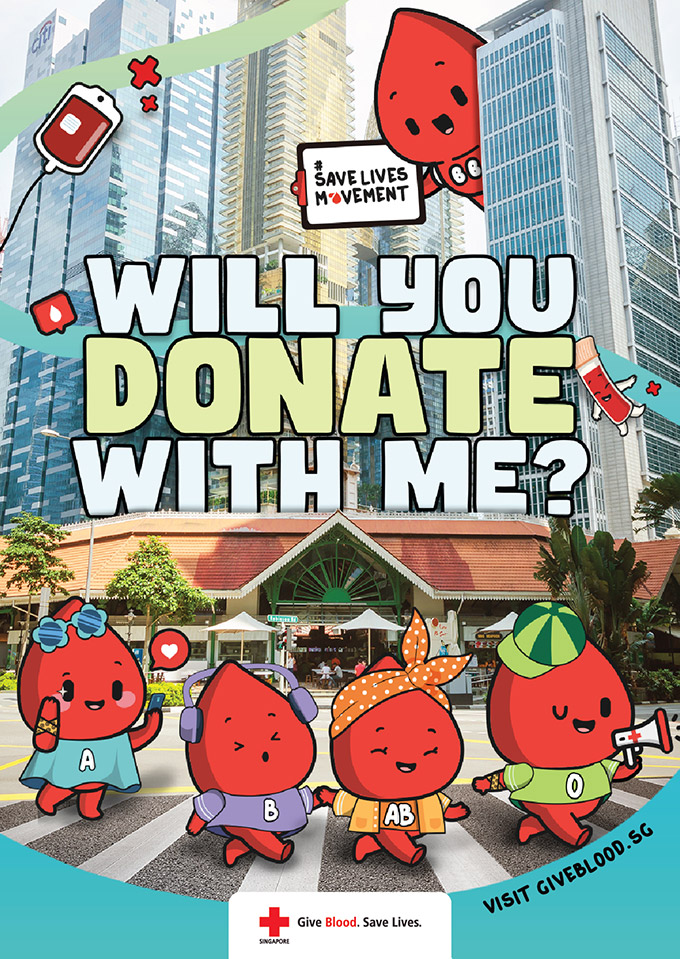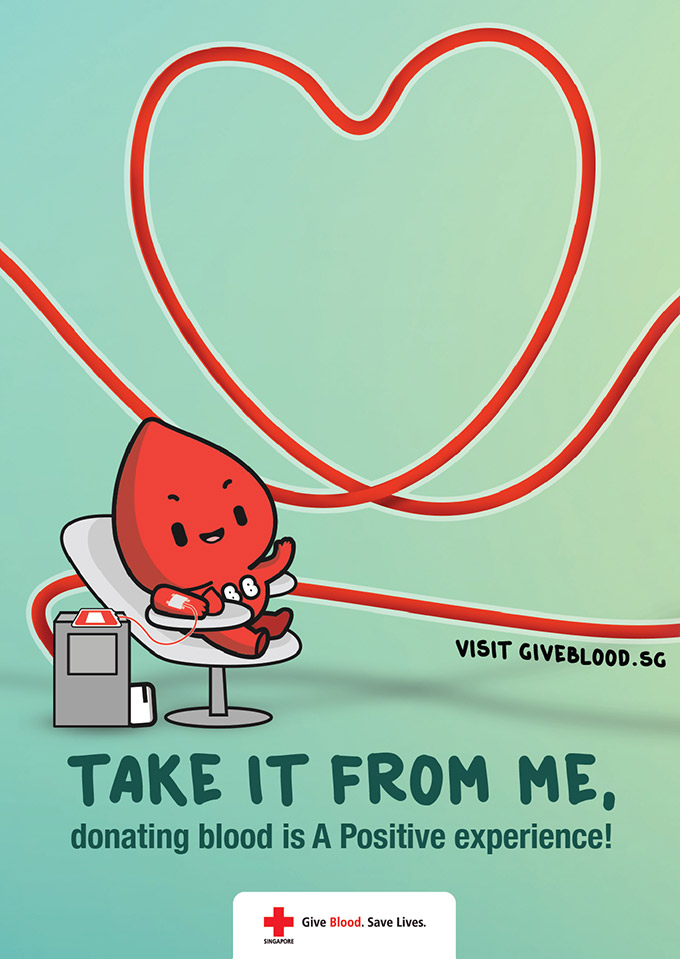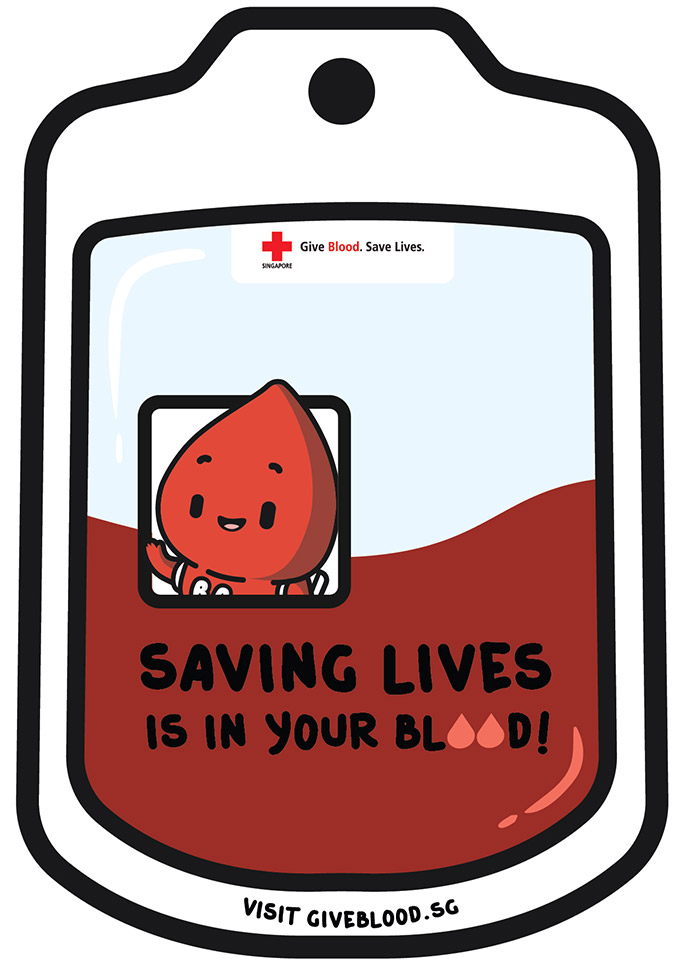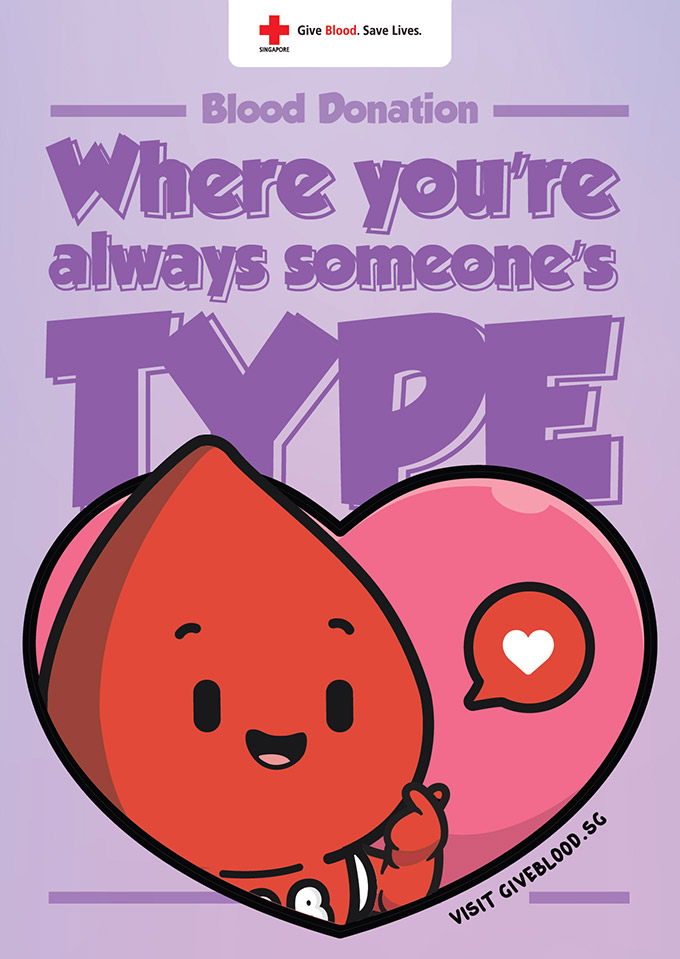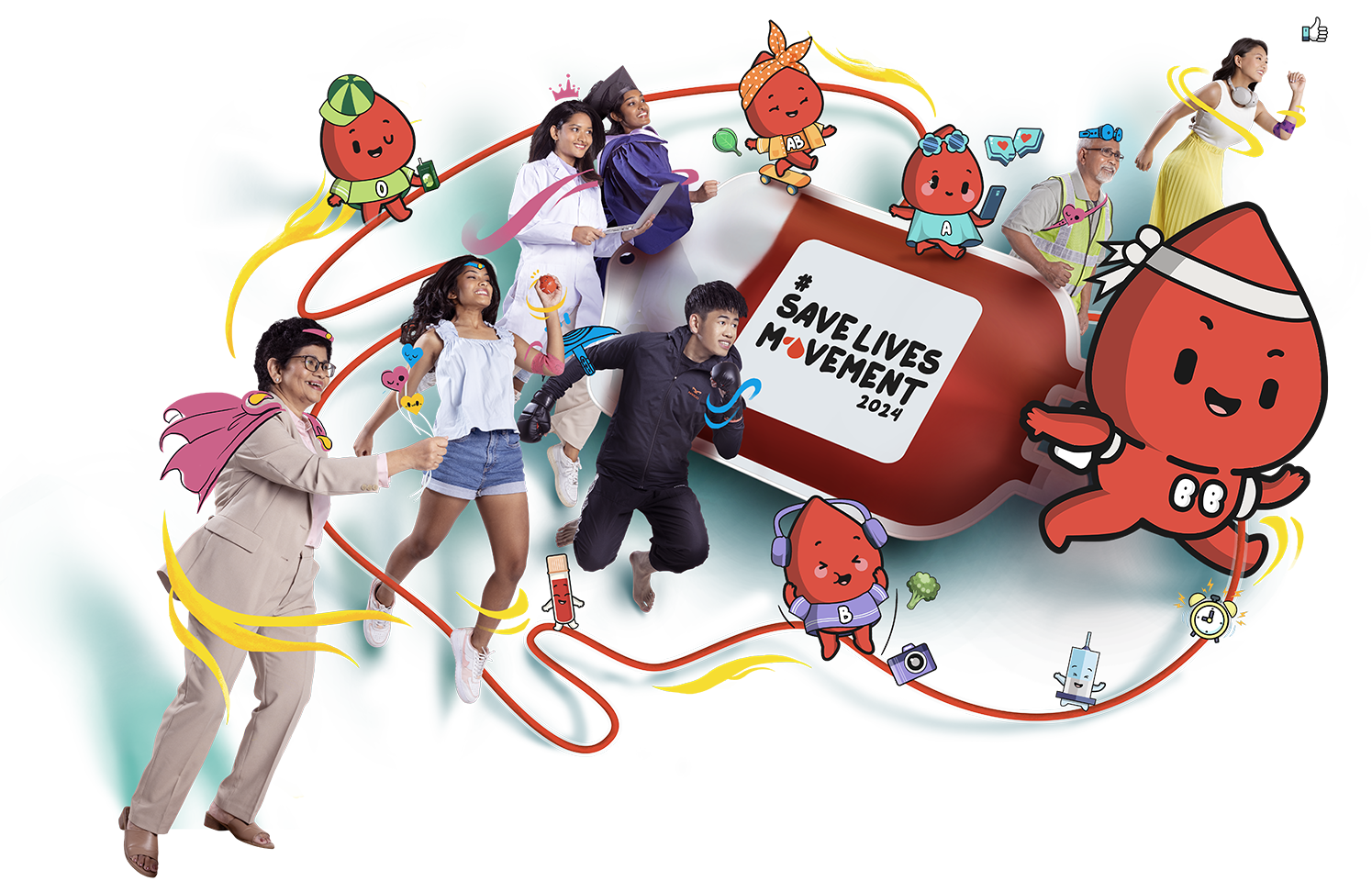
per household to save lives
No matter who you are, you can help to maintain Singapore’s blood supply, and join Blood Buddy in the movement to save lives.

 X
X
How to save lives
with one


ELIGIBILITY

APPOINTMENT

BLOOD DONATION

THE WORD

CONTRIBUTE,
ADVOCATE

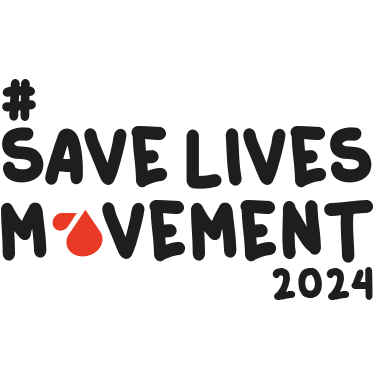
It starts with One donor per household to save lives
Begin your journey to learning more about Blood Donation by clicking on the arrows to the left and right.

READ UP
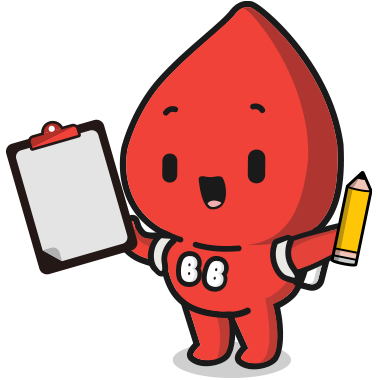
CHECK YOUR ELIGIBILITY
Read up on the criteria for your eligibility or simply take the online eligibility quiz to find out.
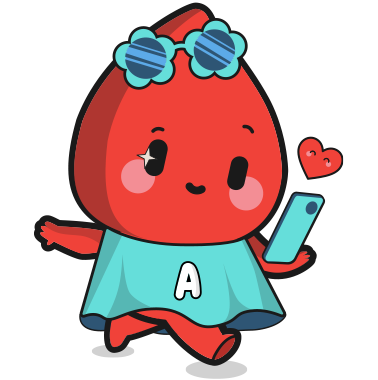
BOOK APPOINTMENT

PREPARE FOR BLOOD DONATION

SPREAD THE WORD
Share about your donation experience and encourage those around you to join in the Save Lives Movement!
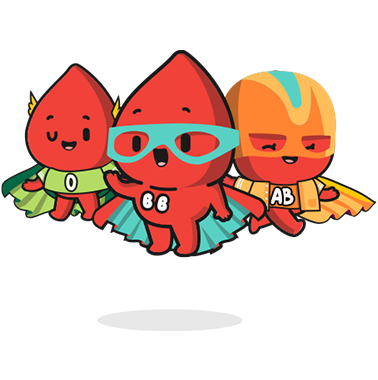
VOLUNTEER, CONTRIBUTE, ADVOCATE
even if you can’t donate. Interested in organising a blood drive, advocating to your community, or spreading the word?


Where to save lives
HSA
Dhoby Ghaut
Westgate Tower
Woodlands
One Punggol
Blood Drives
Bloodbank @ HSA
Tuesday to Friday: 9am to 5pm
Saturday, Sunday: 9am to 4.30pm
Tuesday to Friday: 9am to 4.30pm
Saturday: 9am to 3pm
Sunday: Closed
Donors who wish to donate after 5pm may continue to do so at Bloodbank@DhobyGhaut, Bloodbank@OnePunggol, Bloodbank@WestgateTower and Bloodbank@Woodlands.
Bloodbank @ Dhoby Ghaut
Dhoby Xchange, 238826.
Monday to Wednesday, and Friday: 12pm to 8pm
Saturday and Sunday: 10am to 5pm
Chinese New Year Eve, Christmas Eve and
New Year’s Eve: 9am to 2pm
(Unless it is on Thursday).
Bloodbank @ Westgate Tower
#10-01 to 05
Singapore 608531
Monday and Tuesday: 12pm to 8pm
Thursday and Friday: 12pm to 8pm
Saturday to Sunday: 10am to 5pm
New Year Eve, Chinese New Year Eve and Christmas Day Eve: 9am to 2pm
(Unless it is on Wednesday)
Bloodbank @ Woodlands
(Opposite Causeway Point)
#05-07 Singapore 730900
Monday, Wednesday to Friday: 12pm to 8pm
Saturday and Sunday: 10am to 5pm
New Year Eve, Chinese New Year Eve and Christmas Day Eve: 9am to 2pm
(Unless it is on Tuesday)
Bloodbank @ One Punggol
#02-38
Singapore 828629
Monday, Wednesday to Friday: 12pm to 8pm
Saturday and Sunday: 10am to 5pm
New Year Eve, Chinese New Year Eve and Christmas Day Eve: 9am to 2pm
(Unless it is on Tuesday)
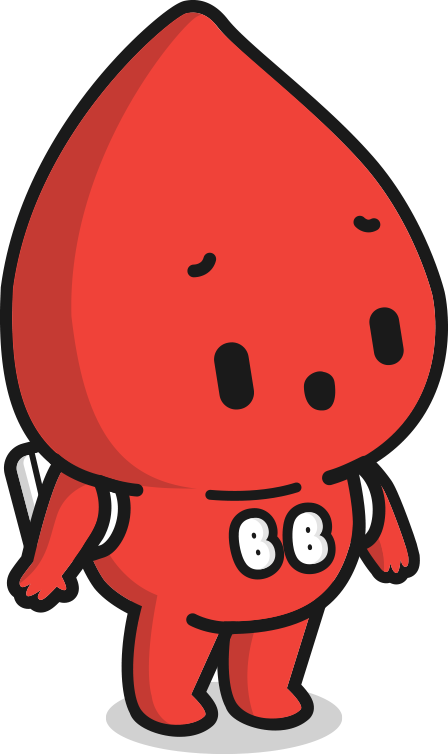
Termination of shuttle bus service to Bloodbank@One Punggol
2-way chartered bus for groups of 10 or more
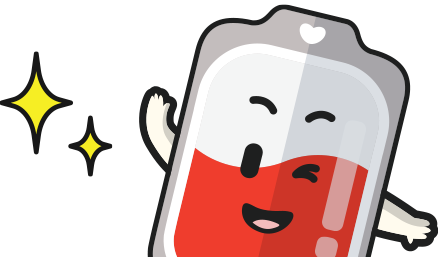
MYTHBUSTERS


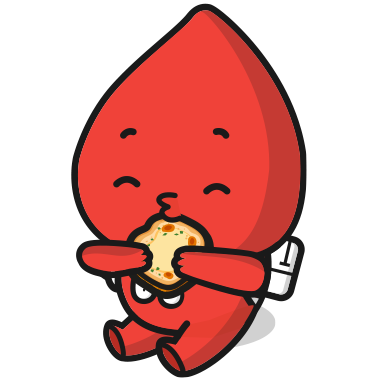
I will gain weight after blood donation

There are enough donors,
so I don’t have to donate
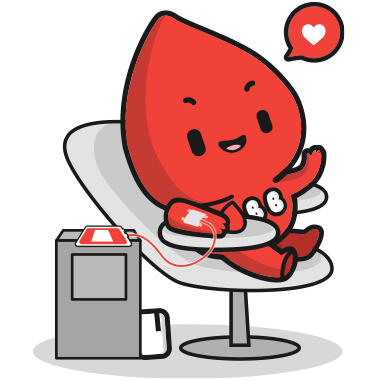
If I donate blood
I won't have enough

Donating blood is painful

I can specify which patient receives my blood donation
Blood is only used for emergency surgeries
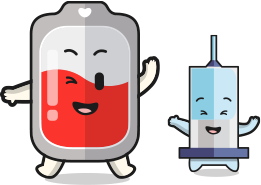
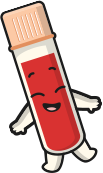
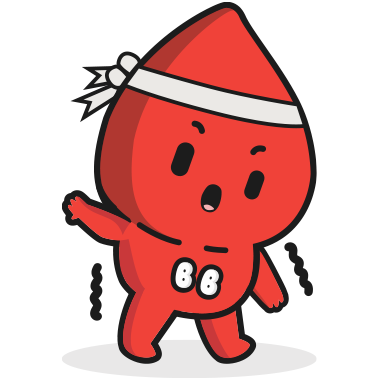
I can catch diseases from blood donation
FREQUENTLY ASKED QUESTIONS
THE BLOOD DONATION PROCESS
Donating blood is a simple process. You can prepare for your donation by checking your eligibility and making an appointment. On the day of donation, you’ll need to register at the Bloodbank and complete a detailed health assessment before donating.
Each blood donation usually takes 45-60 minutes and up to 90 minutes for an apheresis donation.
Please eat a light meal, drink plenty of water and have a good night's rest before donation. No fasting is needed before blood donation. Should you feel unwell on the day of donation, take a rest and consider postponing the donation until you feel better. Avoid drinking tea or coffee and consuming calcium-rich foods (milk, cheese, yogurt) with iron-rich meals or iron supplements. Tannins in tea, caffeine in coffee and calcium reduce iron absorption. Have your coffee or tea after your meals.
Most people will feel okay after the donation. Some donors might experience slight giddiness. For all blood donors, the nurse will ask them to rest on the donation bench for 10 mins after their donation.
If you feel slightly giddy after the donation, continue to rest on the donation bench after the 10 mins or at the refreshment area. Only leave when you feel ok. It is not necessary to eat more after the blood donation to compensate. Blood volume can be replaced just by drinking plenty of fluids.
You should avoid strenuous exercise after donating. Your athletic performance might be slightly lower for the next 3 days.
Here are some tips on post-donation care you can read.
ELIGIBILITY TO DONATE BLOOD
For individuals aged 16 or 17 who wish to donate blood, they are required to submit a signed parental consent form. This is a necessary first step for anyone aged 16 or 17 before they are allowed to register for blood donation.
Blood makes up about 7% of our body weight. We collect 350ml from those who weigh 45-50kg and 450ml from anyone weighing above 50kg.
Collecting less than 300ml of blood is insufficient and taking more than that from someone weighing less than 45kg may cause them to feel giddy.
For blood donations in Singapore, you are required to provide your residential address details (valid for 3 months from your intended donation date) for registration and a contact number by which we can contact you in case of an emergency or if clarification is needed.
Haemoglobin (Hb) is a specialised protein in red blood cells that carries oxygen to the tissues and returns carbon dioxide from tissues to the lungs. Iron is essential for the manufacture of haemoglobin.
Prior to each blood donation, you will be tested for your Hb level usually through a simple finger-prick test at the blood donation site. Donors must have a Hb level of at least 12.5g/dl for females and 13.0g/dl for males before they can donate blood. This is to ensure the safety of the donor as frequent blood donations without sufficient replacement of the iron can lead to iron deficiency anaemia.
Iron deficiency can be prevented by eating a well-balanced diet that includes iron-rich foods. Iron from meat and seafood sources is better absorbed by the body. However, you can improve iron absorption from non-meat and non-seafood sources by consuming them together with foods and liquids rich in Vitamin C.
Foods that are rich in iron content can be found in the following (ranked from highest to lowest per standard serving within each category):
Vegetable
- Kang kong
- Spinach (bayam pasir)
- Chinese kale (kai lan)
Meat and seafood
- Pork kidney
- Chicken liver or pork liver
- Lean beef or lean mutton
- Canned tomato sardines
- Lean pork
Beans, nuts, seeds, soy products
- Lentils
- Green gram or red gram
- Cashew nuts
- Sunflower seeds or watermelon seeds
- White soya beans
- Pistachios
- Soya beancurd, tofu
Fruits
- Dried figs or dried longans
- Dried black dates or dried red dates
- Semi-dried prunes
Rice and alternatives
- Bran flakes
- Cornflakes
- Wholemeal pasta
Iron-rich foods, such as lentils, pumpkin seeds, beans, dates, longans, grains, nuts, and green, leafy vegetables can help to ensure you meet the requirements for blood donation. Having a diet rich in Vitamin C can also help as it increases the absorption of iron in your body.
Taking iron supplements a week before your scheduled donation can also make a difference.
At the same time, avoid drinking tea/coffee/caffeine-rich drinks 1 hour before and after food, as caffeine can reduce the absorption of iron by more than 80%.
For cold, sore throat, flu or any other symptoms (except for fever), please wait 1 week after you've fully recovered before donating blood. For fever symptoms, please wait at least 4 weeks after you've fully recovered before donating.
You can donate blood! However, you should not donate when you're under the influence of alcohol. It is important that you're in the best state of mind when you provide details about your health history to ensure blood safety.
If the tattoo or body piercings was not done using sterile, single use, disposable needles (or if you are not sure), you can donate 3 months after the last tattoo or body piercing procedure.
You do not need to know your blood type beforehand, nor will our staff be able to test your blood type for you prior to your donation. However, following your donation, your blood will be tested for its type and you will be informed of your blood group on your next donation.
BLOOD DONATION SAFETY
To ensure all patients receive the safest possible blood, the Health Sciences Authority (HSA) screens and processes all donated blood before it is transfused to patients.
Blood component processing
To optimise blood usage and to benefit more patients, every bag of donated blood is processed into different components:
- Red Blood Cells: used to treat severe anaemia or during surgery, childbirth
- Platelets: used for dengue fever, leukaemia and cancer patients
- Fresh Frozen Plasma: used to help manage blood clots during bleeding or infection.
Infectious diseases testing
All donated blood is screened for infectious diseases, including HIV, hepatitis B, hepatitis C, hepatitis E and syphilis. Selected components or units may also be tested for malaria or bacterial contamination.
Blood group testing
This ensures that the donated blood is given to a patient with a compatible blood type.
Antibody screen
This is to ensure that there is no high level of abnormal antibodies in the donated blood that may be harmful to a patient following a transfusion.
Storage of blood products
All blood products must be stored under carefully monitored and controlled temperatures and conditions. This ensures that they are in an optimal state when transfused to patients.
Blood donation is a safe process. The average adult has 4 to 5 litres of blood. During a donation, only 350 to 450 ml of blood is drawn. About 8% to 12% of your blood volume (depending on your weight) will be taken during blood donation. The fluid (plasma) portion of your donated blood will be replaced in a few days.
PLANNING YOUR DONATION SCHEDULE
Before making an appointment to donate, it is important to be aware of some of the common reasons that could lead to an unsuccessful donation, and of how donating blood could affect your ability to carry out some activities later.
When Not To Donate
In general, if you're currently undergoing treatment for a major illness or surgery, or (for women) if you're pregnant or experiencing heavy menstrual flow, you're advised to delay your blood donation for the time being.
For donors who have recently travelled overseas, there are also certain restrictions depending on the location you travelled to.
Visit www.hsa.gov.sg/donor_criteria to check your eligibility by doing a short quiz.
We encourage donors to plan their next donation by taking note of the following:
Post-donation activities
- To prevent bruising and to promote healing at the needle site, you need to avoid lifting or carrying heavy items for at least 12 hours.
- You will also need to avoid undertaking any strenuous or athletic activities for 24 hours to enable your body to adjust to the donation.
- Continue to hydrate yourself throughout the day to help your body replenish the donated blood.
Travel
- Some travel destinations have different waiting periods for blood donation. Consider donating blood before you travel.
Donation intervals
- For whole-blood donations, there is a waiting period of 12 weeks before you can make your next donation. For apheresis donations, the waiting period is 4 weeks.
Holiday periods/long weekends
- Blood stocks tend to dip during long weekends and holiday periods. Consider scheduling your donation during holiday periods and long weekends. This would ensure that our blood-stock levels remain at healthy levels at a time when many regular donors may not be available.
You can donate at our Bloodbank@HSA, @Dhoby Ghaut, @Westgate Tower, @Woodlands or @OnePunggol. However, apheresis donation is only available at Bloodbank@HSA.
You can also choose to donate at any of our community blood-drives, which are held regularly in different locations across Singapore. To reduce waiting time, you may wish to make an appointment for your donation by calling us on 6220 0183 or making an online booking using your Singpass.
You can also download the DonateBlood App to keep updated on blood drive locations and make appointments.
You should wait at least 12 weeks before making your next blood donation. For apheresis donations, the waiting period is 4 weeks between donations.
COVID-19
The waiting period may vary depending on the type of vaccine received or if you develop symptoms after receiving the vaccine. Visit here for the latest info.
Donors diagnosed with COVID-19 (Coronavirus disease 2019) can donate 28 days after the first positive PCR or ART result (Day 1 is the date when the test was performed). This is to ensure that the donor has recovered completely and is fit for donation.
Others
Your blood is sent for screening and separated into three components - red blood cells, platelets, and fresh frozen plasma - before being placed in carefully monitored and controlled conditions to make sure it's in an optimal state when transfused. Red blood cells can be stored for up to 6 weeks, but most of the blood is usually transfused within 2 weeks.
Yes, you can bring your friend. However, they will have to join the walk-in queue whereas you will have priority since you have already booked your donation slot. As such, if there are many donors on the day, you may not be able to make your donations together. Alternatively, your friend may call Singapore Red Cross at 6220 0183 to make an appointment at least one day beforehand. You can also make an appointment online or via the DonateBlood App.
We do not collect directed donations. Blood is regularly supplied to hospitals all over Singapore based on their needs.
To organise a blood-drive either on your organisation's premises or in the community, please contact the Singapore Red Cross at 6220 0183 or email donate.blood@redcross.sg for more information.

